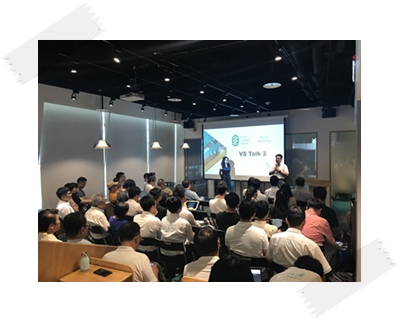Taiwania Capital Management Corporation was established almost three years ago, in August 2017, and it currently manages two funds. Its NT$4.65 billion IoT fund (Fund I) and its NT$5.9 billion biotech fund (Fund II) invest in firms at home and abroad that have new technologies, and have successfully facilitated cooperation between Taiwan and overseas partners in cutting-edge research. To support accelerated development of early-stage startups and makers of innovative medical devices, Taiwania Capital plans to begin offering two new funds by the end of this year. One of these funds will focus on early-stage IoT startups, while the other will focus on innovative biotech and medical device companies. By funding venture capital activity, Taiwania Capital hopes to further energize innovative activity in Taiwan.
After being established with capital contributions from the National Development Council’s Industrial Technology Investment Corporation, the National Development Fund, and the Bank of Taiwan, Taiwania Capital successfully launched its NT$4.65 billion IoT fund (Fund I) in December 2017, then followed up by launching its NT$5.9 billion biotech fund (Fund II) in July 2018.
Since its founding, Taiwania Capital has used a variety of strategies to create a higher profile for Taiwan in international finance and investment circles. These strategies include aggressive investments in US companies that are forward-looking or maintain a technological edge over their competitors; the creation of direct links with government, academic, and research organizations in Taiwan; and creation of tie-ups with noted international venture capital firms for the purpose of joint investments in leading overseas companies. 
At the same time, to spur dialogue between venture capital and startup firms, Taiwania Capital has helped launch the “VS Talk” lecture series, to which venture capital professionals and international experts are invited to speak. This lecture series now has a very enthusiastic following. And the Taiwania Young Entrepreneurs Academy, which was established in November 2018, offers at least three trimesters of coursework each year to cultivate up-and-coming managerial talent for our country’s venture capital and biotech industries.
Using investment activity to build a positive feedback loop between startup and venture capital firms was one of the reasons why Taiwania Capital was founded. Its IoT fund, for example, has evaluated over 300 possible investments each year since it was launched. Many of these investment proposals have involved companies at a stage too early to match the purpose of the Taiwania IoT fund, and thus were not approved. To properly provide for the early-stage capital needs of startups while also using investments to enter as quickly as possible into cooperative relationships with companies, Taiwania Capital is planning by the end of this year to offer a new fund that will invest primarily in pre-A startups in the AIoT and 5G fields. Before a startup carries out an IPO or M&A deal, said Taiwania Capital CEO David Weng, it will have different capital needs at different stages of its development. Obtaining VC resources at an earlier stage can enable the startup to achieve bigger synergies as it establishes a business model, operates its business, and seeks to expand.
As for the field of biotech, Jerome Shen, Taiwania Capital’s Head of Life Science Investments, describes medical devices and pharmaceuticals as two key pillars for the development of Taiwan’s biomedical industry, but he notes at the same time that there are huge differences between these two fields in terms of development paths, product development cycles, and regulations. In recent years, the biomedical industry has made use of advanced applied materials, photovoltaics, electronics, ICT technologies, and precision machinery technologies to achieve breakthrough innovations and develop high value-added medical devices, and this approach has become a new trend at home and abroad among firms seeking to improve medical treatment processes and syndromic surveillance or to develop precise and accurate medical devices. In Taiwan, as well, the resources of the Ministry of Science and Technology, Academia Sinica, and medical universities have supported a collaborative effort by industry, academia, and the medical profession that has led to the creation of a medical device industry eco-cluster. The new funds that Taiwania Capital plans to begin offering by the end of this year will be both focus on the field of innovative medical devices. In addition to supporting the development of innovative medical device makers in Taiwan, the new funds will also tap into Taiwania Capital’s current international resources to help domestic medical device makers embark upon international markets.

